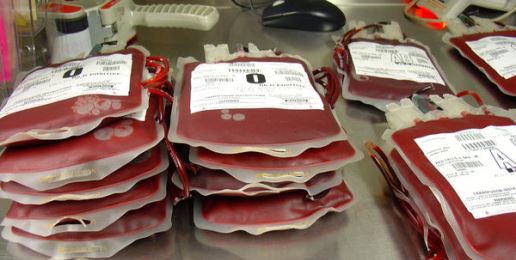Want to bet that few people are going to be aware of this? From Laurie Higgins:
After years of lobbying by homosexual activists, the FDA has lifted its lifetime ban on “men who have sex with men” (MSM)—which is the Centers for Disease Control designation—from donating blood. Homosexual activists view the ban as unjustly discriminatory, a relic from the beginning of the AIDS crisis when testing was far less effective. The change means that donations from MSM who claim not to have had homoerotic encounters for one year will be now be accepted.
While many homosexuals claim the lifetime ban was based on “homophobia,” they can’t explain why it didn’t apply to lesbians. Facts are such stubborn and inconvenient things.
While many cheer this decision as a victory for science, others are wondering if it’s a political victory for male homosexual activists.
The FDA explains that “its policies to date have helped reduce HIV transmission rates from blood transfusions from 1 in 2,500 to 1 in 1.47 million.” Further, the FDA cites an Australian study that showed no increase in HIV/AIDS transmission rates following their switching from a lifetime ban to a one-year deferral period.
News reports cite similar policy shifts in other developed countries. For example, the United Kingdom, Australia, Sweden, and Japan all have one-year deferral periods, and Canada and New Zealand have five-year deferral periods. It is interesting to note, however, the HIV/AIDS adult (ages 15-49) prevalence rates in these countries as compared to the United States:
- United Kingdom: .3%
- Australia: .2%
- Sweden: .2%
- Japan: <.1%
- New Zealand: .1%
- Canada: .2%
- United States: .6%
The United States has twice the HIV/AIDS prevalence rate as the country with the next highest rate.
Read more: Illinois Family Institute
Image credit: www.illinoisfamily.org.

